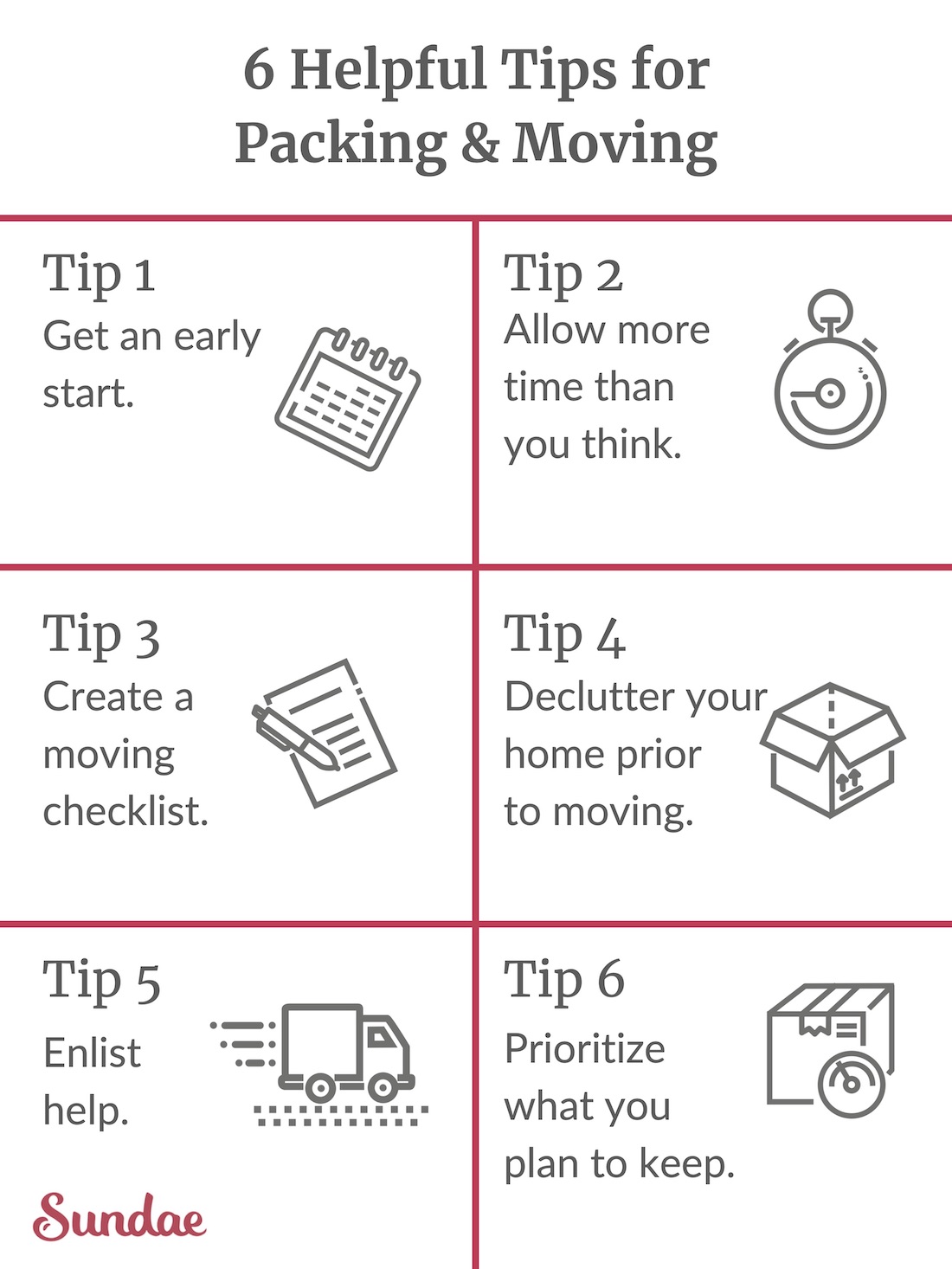Buying a House Out of State: 8 Tips
Planning to make a long distance move? Follow these 8 tips for buying a house out of state.
It happens. The perfect job offer comes in, but with one catch. It’s in San Antonio and you live in San Diego. Time to pick up the family and relocate.
Orchestrating an interstate move usually happens under a time crunch that often leads to having to buy a home in one state, while packing things up in the other. In fact, around three million Americans do this every year, so it’s not out of the question you’ll face some motivating factor in your life that takes you from one state to another.
Avoid the pitfalls of buying a house out-of-state with these helpful tips.
1. Choose your new neighborhood
Maybe the hardest thing about buying a house out-of-state is picking the right spot. You’ll not only want a safe neighborhood with plenty to do, but also one with good schools and an easy commute. Narrowing down your options means doing your research.
Spend some time checking out neighborhood reviews online in addition to looking at property listings. Look up the city’s website and watch a little bit of the local news online. Talk with family or friends who live in the area and get their feedback.
Later, locate a real estate agent who knows the areas you’re looking at. Ask them to send you listings as they pop up, and provide honest feedback about where you think you want to call home.
See also: First-Time Homebuyer Guide
2. Schedule a visit (or two)
Even if you’re already actively looking at properties online, seeing things in person can help you familiarize yourself with the area. Plan a trip early on, and spend time driving around to get a feel for the neighborhoods. Consider doing a test run of what your commute will be like for work. Expand your exploration to see what stores, restaurants, and parks are close by to make sure the area has what you want.
If possible, try and go to an open house or two while visiting, or have your real estate agent set up some showings. Even if you don’t find your dream home, seeing inside similar properties will give you a more realistic picture of what houses are like in your new city.
A secondary visit should happen when you find that dream home. It’s best to see a place before you buy it, so try and budget for both a fact-finding visit and an in-person trip.
3. Add a little extra to your time table
Managing a home purchase from out-of-state simply takes longer, so set expectations accordingly. This includes everything from securing your mortgage to finalizing your offer. Especially if you live in a different time zone, communication with your real estate agent can take longer.
It may also take a little longer to narrow down and get in touch with people like a home inspector or a real estate lawyer. Your real estate agent can provide you with referrals, but you may run into scheduling challenges if you’re trying to fly in and be present for some of the major steps in the homebuying process.
One way to keep things moving with minimal delays is to use a national company when it comes to selecting the bank you work with and the title company that finalizes your sale. Going national means you’ll have a branch in your current hometown and your new one, making it possible for you to visit a local office regardless of where you are.
4. Take homebuying virtual
Now more accessible than ever before, it’s not necessary you walk through a house with your own two feet. Make sure the real estate agent you’re working with is comfortable with virtual tours of prospective homes. Schedule viewings as if you were there in person, but instead, have your agent walk through with you on a video call.
Take a look at each home in real time so you can ask questions in the moment. A live, virtual tour also lets you request a closer look at any areas you couldn’t see clearly in pictures. You can also get immediate feedback, from your agent, on what their impression of the home is, all without having to travel back and forth.
Related: How the Pandemic Changed Buyer-Seller Behaviors
5. Make an electronic offer
Don’t let distance slow you down when you’re ready to make an offer on a home. Your real estate company should have an online proposal feature, which you can use to submit an official offer electronically with a digital signature.
The days of faxing, and worrying about whether documents are making it to their destination are long gone. Having an e-offer go through the moment you’re ready can make the difference between getting that ideal home and missing out because of distance.
Further reading: What is an iBuyer?
6. Try to attend your closing
Extenuating circumstances happen, even when you’re set to close on a house. If moving from out-of-state makes it impossible to attend your closing, it’s okay. It can still happen on schedule, as long as you prepare for it. First, tell your agent and the title company you won’t make it. They may be able to reschedule it for a date where you can be there in person.
If it’s certain you won’t be at your closing, one option is to assign a Power of Attorney. This involves giving someone else legal power to sign documents in your place, and at a closing, there are a lot of things to sign. You can assign Power of Attorney to anyone you choose — a spouse, family member, friend, or even your real estate agent. Usually the title company can draw up the necessary legal documents.
Another way to remotely close on a home is to ask for a “mail away” closing. This is where the title company sends you all the documents you must sign in advance. You then add your signature, under the observation of a public notary, before overnighting everything back. Your signed documents then arrive in time for the actual closing where the rest of the signatures get added in person.
7. Sell your current house
It’s almost impossible to schedule a concurrent closing when you’re buying a home in one state and selling a house in another. Many banks won’t approve the loan to buy until you’ve already sold, which can impact your moving timeline if the market isn’t very active.
If it’s absolutely necessary to sell your current home before you can close on your new one, consider the reliability of working with an off-market buyer. They not only get you through the process from offer to close faster, but many buy homes as-is, so there are no worries about staging or fixing anything up. You can have moving boxes everywhere and still get an off-market offer.
Sundae, for example, understands that sometimes timelines are tight. If you accept an offer from an investor on our marketplace, you can be assured that you’ll close at that price. Not only can investors not change their price but they cannot backout either. No price reductions, no surprises. From there, we allow you, the seller, to pick your closing date. Our flexible and transparent process takes away some of the stress related to buying, selling, and moving between states.
8. Prepare to move

Moving between states is almost just as chaotic as home buying, so it’s always good to plan ahead and stay organized. Secure a moving company that’s experienced with long-distance moves and spend extra time deciding what you can live without and what you need immediately after your move. There’s a good chance you’ll have to wait at least a day or two to get your stuff from the movers.
Pack a few days worth of clothing, important paperwork, valuables, and your everyday essentials to carry with you. Think of it as loading up for a vacation with a few additional items in tow. Use your suitcases, backpacks, and totes to transport everything you’re carrying with you so everything is easy to move from place to place.
For all the boxes movers are loading up, make sure to clearly label each one to ensure it goes to the proper room in your new home. To avoid any storage costs, verify your new home is move-in ready before your stuff gets delivered.
Selling before buying a house out of state
Deciding to live in another state is a big choice that can involve a lot of details. From finding a new neighborhood to call home to buying a new house, there’s nothing you can’t do remotely with careful planning, a little research, and a reliable support team.
That said, selling your home before an interstate move should be as stress-free as buying one. To accomplish that, consider taking away the obligations of staging and repairing your home before listing it. You can get a competitive offer on your home without the hassle by working with an off market buyer on Sundae’s marketplace.
Ready to Get Started?
Sell as-is. Pay zero fees to Sundae. Move on your time. No repairs, cleanings, or showings.
